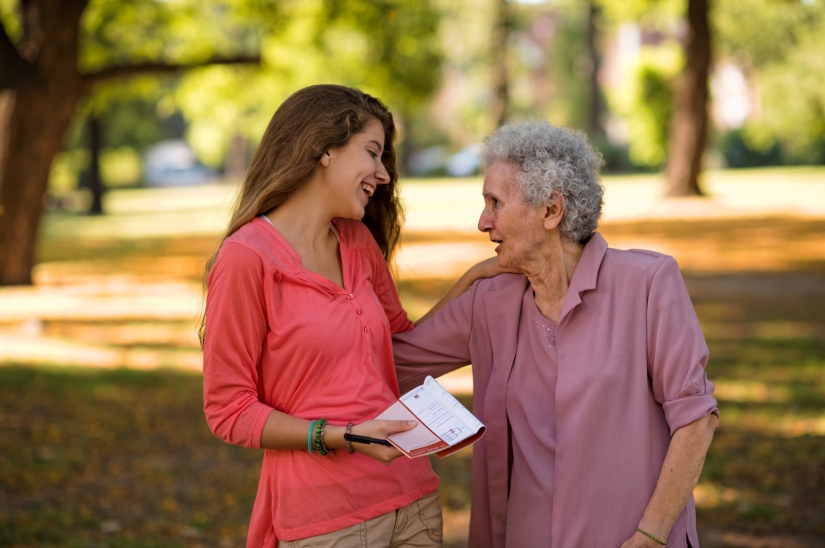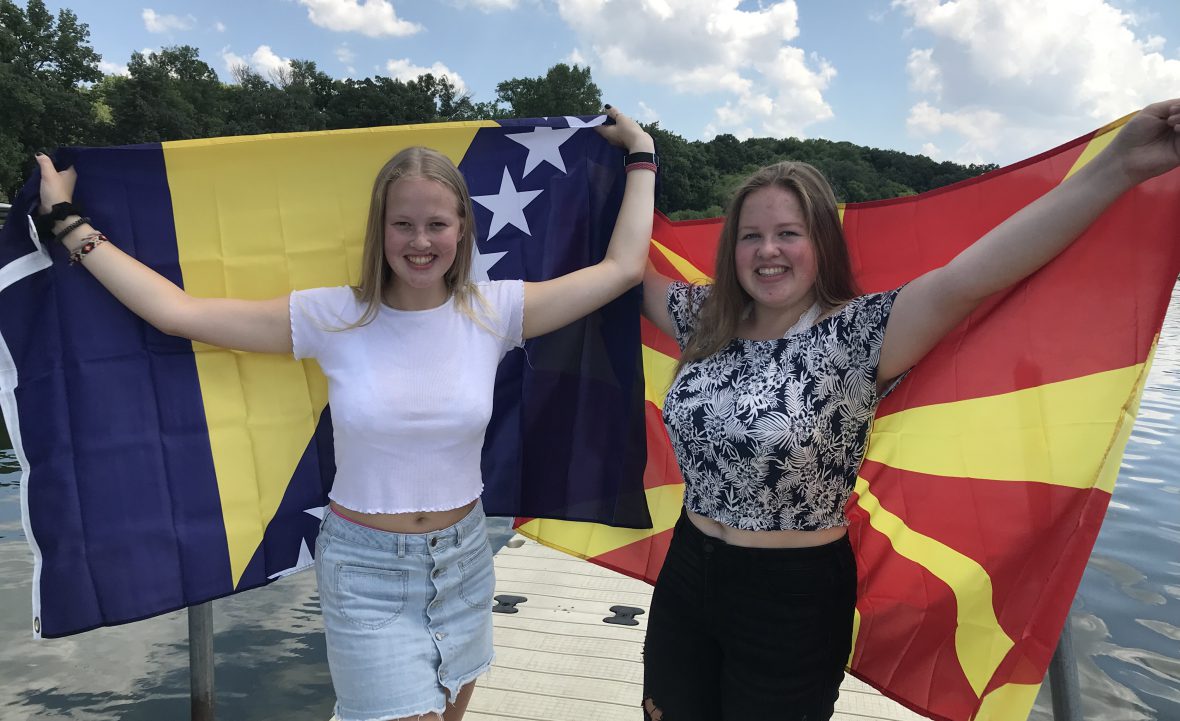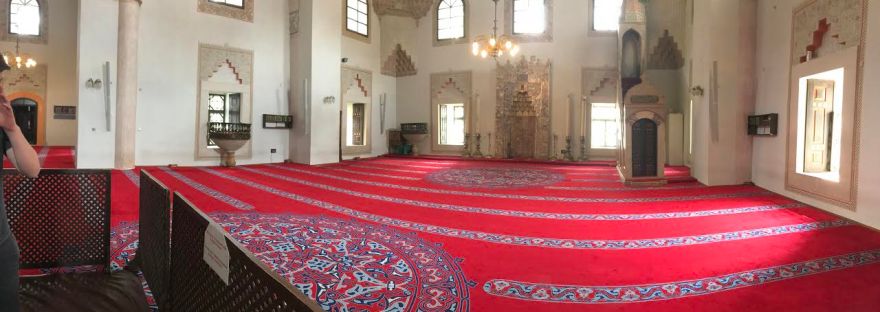
A few days ago I was walking my usual route home, about to cross the last intersection before my street. The light was already green and I was hurrying to cross when I saw an elderly woman standing in front of the crosswalk. She turned to me as I was approaching and stuck out her arm. As I got closer, she grabbed my hand and linked her arm around mine. She mumbled something in Bosnian about needing help as we started to slowly descend from the curb with me supporting her. While we were crossing she was thanking me repeatedly and was calling me srce moje (“my heart”). We successfully crossed the street and she thanked me once again as we parted our separate ways.
I was so happy after this small interaction. This woman is not extremely physically capable, but that does not stop her from going out and living her daily life. She is confident in her community and knows that they will help her without question, and she will do the same in return. It touched my heart because it really made me feel like I was part of a community here even though we had never met before.
While I was thinking about this, I started comparing the situation to the U.S. I would have never had this experience there because there is not so much emphasis on community. It reminded me to step back and look to help people instead of hurrying through my life.
American self-reliance makes such opportunities rare. Elderly people are often too ashamed to ask for help because they think it makes them look weak, and a younger person might not want to offer help because they would not want to offend the elderly person to assume that they are weak.
This gesture in Bosnia is, however, one of pure respect–a very important quality for a Bosnian. It would be shameful if they were disrespectful to teachers, an elderly person, or a friend’s parent. At first I thought that the extreme measures that people would go to to show respect was almost cheesy. While an American might see this as “old-fashioned,” I have grown to love this “traditional” way of connecting with my community.
It is something that I will bring back with me to the United States because it is way of showing thanks without directly saying, “thank you.” In the US we call it “paying it forward”; this woman helped others when she was young, and now I get to participate in this virtuous cycle. We as Americans can help our elders out of respect, in the hope that our own children and grandchildren will come to our aid when we need it.

